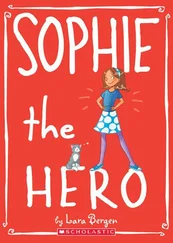Two weeks before she was supposed to arrive, Vadik vacated his old place in Morningside Heights and moved into the new one.
“Show me all the rooms again,” Sejun demanded on his first night there. “I want to see how they look with a person there.”
It was then that Vadik noticed the first signs of trouble. Once Sejun saw the pictures of the apartment “with a person there,” she didn’t seem to love it as much as before.
“Shit, you’re too tall for that chair,” she said.
“You can use it then,” Vadik said.
“No, no,” she said, “I ordered it specifically for you. I won’t be comfortable in that chair. Oh, and please don’t lean on the table — it’s delicate.”
“It seems like she likes everything about our apartment except for me in it,” Vadik complained to his friends. Sergey laughed. Vica said, “Imagine that!” Regina was the only one to reassure Vadik, but even she didn’t sound too convinced.
A few days before Sejun’s arrival date, Vadik called to ask her for her flight number — he wanted to meet her at the airport.
There was a long pause and then Sejun said that she hadn’t bought the ticket yet.
Vadik almost dropped his phone. “But you have to start work in less than a week!”
Sejun explained that she was waiting for a cheaper last-minute rate.
“I’m fucked, right?” Vadik asked Regina.
“I’m afraid so,” she said.
After that conversation, it became really hard to reach Sejun. She refused to pick up the phone and ignored Vadik’s texts. Her final communication came in the form of an e-mail with a huge video attached. Vadik read the text of the e-mail while lying on the Danish Modern bed she had ordered, so low that it seemed like a continuation of the sidewalk outside. If Vadik opened the blinds, there would be strangers’ legs on the same level as his head, marching back and forth and all over him. Sejun explained that they couldn’t possibly live together. How they didn’t match at all but were simply drawn together out of loneliness, and how terribly sorry she was for making him move. “It’s a really nice apartment though, I’m sure you’ll grow to love it.”
Then Vadik opened the attachment. It was an electronic collage of their best moments together. A tasteful and moving collection of their photographs, with snippets from their e-mails dancing on the screen to Cohen’s “Dance Me to the End of Love,” hiding, fading, suddenly coming into focus and ultimately merging into a large “I AM SORRY!”
Cohen! What a nice touch! Vadik thought before smashing his iPad to pieces against the footboard of his Danish bed.
This new place was the seventh apartment he had had since he moved to the U.S. Seventh! He knew that his friends made fun of this fact, but he had never thought it was ridiculous. He had tried out different places and he had enough courage to admit that they were wrong and move. He used to think it was admirable. A lot of people hated their lives, but just a few were able to admit it, and even fewer to make a change. And how on earth were you supposed to figure out what worked for you if you hadn’t tried and discarded the things that didn’t work? Weren’t you defined by what you were not? Wasn’t it Sartre who said that? Vadik took a sip of his espresso and googled the quote, confirming the words did belong to Sartre, but the sentence was a little different. “You are what you are not and are not what you are.” The second half made the entire sentence pretentious and senseless. Vadik decided to tweet just the first part and typed: “You are what you are not. #KnowThyself.” That sounded too serious. He changed the hashtag to #KnowThyselfie.
His phone buzzed just as he was posting the tweet. “Where are you? I’m hungry,” the text read.
Vadik sighed, left a generous tip on the table, and hurried home.
When he opened the door, he found Sergey in his usual position: sprawled on the settee by the window with his old laptop propped against his chest. Comfortable, contented. His dainty frame made him fit Sejun’s furniture better than Vadik. Sergey even enjoyed the fact that the apartment was on the first floor. He insisted that they leave the blinds up, because that way he felt “in the middle of the racket.”
“Hi, there!” Sergey said.
“Hi,” Vadik said, trying hard not to wince. Seeing Sergey first thing when Vadik entered his apartment was getting harder and harder to tolerate.
When Sergey appeared on Vadik’s doorstep three weeks ago, Vadik had no choice but to take him in. He was even a little excited. Vica threw Sergey out! No, he didn’t gloat that Vica and Sergey had finally broken up, he was excited because something huge had happened, some major event that would inevitably change their lives — his and Regina’s too. Of course Vadik welcomed the distraction from the prickly humiliation of his breakup with Sejun.
So he had led Sergey into the living room, brought him a shot of vodka and a huge mug of green tea, and listened to the stuttering account of what had happened.
Vica wasn’t shocked or angry when Sergey told her he’d been fired. Her expression was that of deep revulsion. She said that she knew it would happen. She asked if he understood how selfish it was of him to keep losing his job. Yes, she thought it was his fault. He acted like a child. He was ridiculous. What grown man would insist on drinking a glass of milk before bed? She said that he would never ever accomplish anything with the apps either. He was delusional about his genius. He was incredibly, sickeningly pretentious and some foolish people took this for intelligence. She used to be one of them. She was duped into admiring him. But now she was positive that not only was he not a genius, he wasn’t even very smart. He had loser genes. He was pathetic. She was sick of him. The thought of touching him made her shudder with disgust.
Sergey sat in Vadik’s elegant chair, rocking back and forth, his hands on his knees, staring straight ahead as if his life were a sad, incomprehensible movie playing out on the invisible screen in front of him.
“Do you have your things?” Vadik asked.
Sergey nodded and reached for a yellow plastic bag with MYEUROPE on it. There were several crumpled pairs of white briefs, an odd number of cheap socks, a falling-apart volume of Fyodorov’s writings, and a two-quart carton of milk. “I stopped in a deli on the way,” Sergey explained to Vadik. “I wasn’t sure if you had any milk.” That carton of milk in a plastic bag made Vadik choke up.
Sergey had been Vadik’s best friend for more than twenty years now. They first met when they were sixteen. Sergey and his parents came to spend two weeks at the Black Sea resort town where Vadik lived. Vadik’s aunt was their landlady. Vadik was immediately impressed by Sergey’s looks, his knowledge of American music and French philosophy, and his cool Muscovite airs. But Vadik managed to impress Sergey too. Vadik knew a lot of poetry by heart and he had already had sex with a girl. Her name was Nina. She made Vadik so crazy that he kissed her on the butt once. “Did you really kiss her butt?” Sergey asked. Vadik confirmed that he had. “I would never do that,” Sergey said. “Yes, you would, when you’re in love,” Vadik said. They spent hours talking about sex, and love, and death, and poetry, and the meaning of life.
They must have made a very funny pair. Sergey, short, trim, and Jewish-looking, and Vadik, blond, burly, and big, humming Leonard Cohen songs, reciting Mandelstam and Sartre, strolling along the beach together, Vadik’s footprints noticeably larger than Sergey’s.
They solidified their friendship when Vadik came to Moscow to study mathematics at the same university where Sergey was studying linguistics, and sustained it through all the calamities of their lives. But it was there in the United States that they grew especially close, taking turns navigating each other through the intricacies of American life.
Читать дальше












